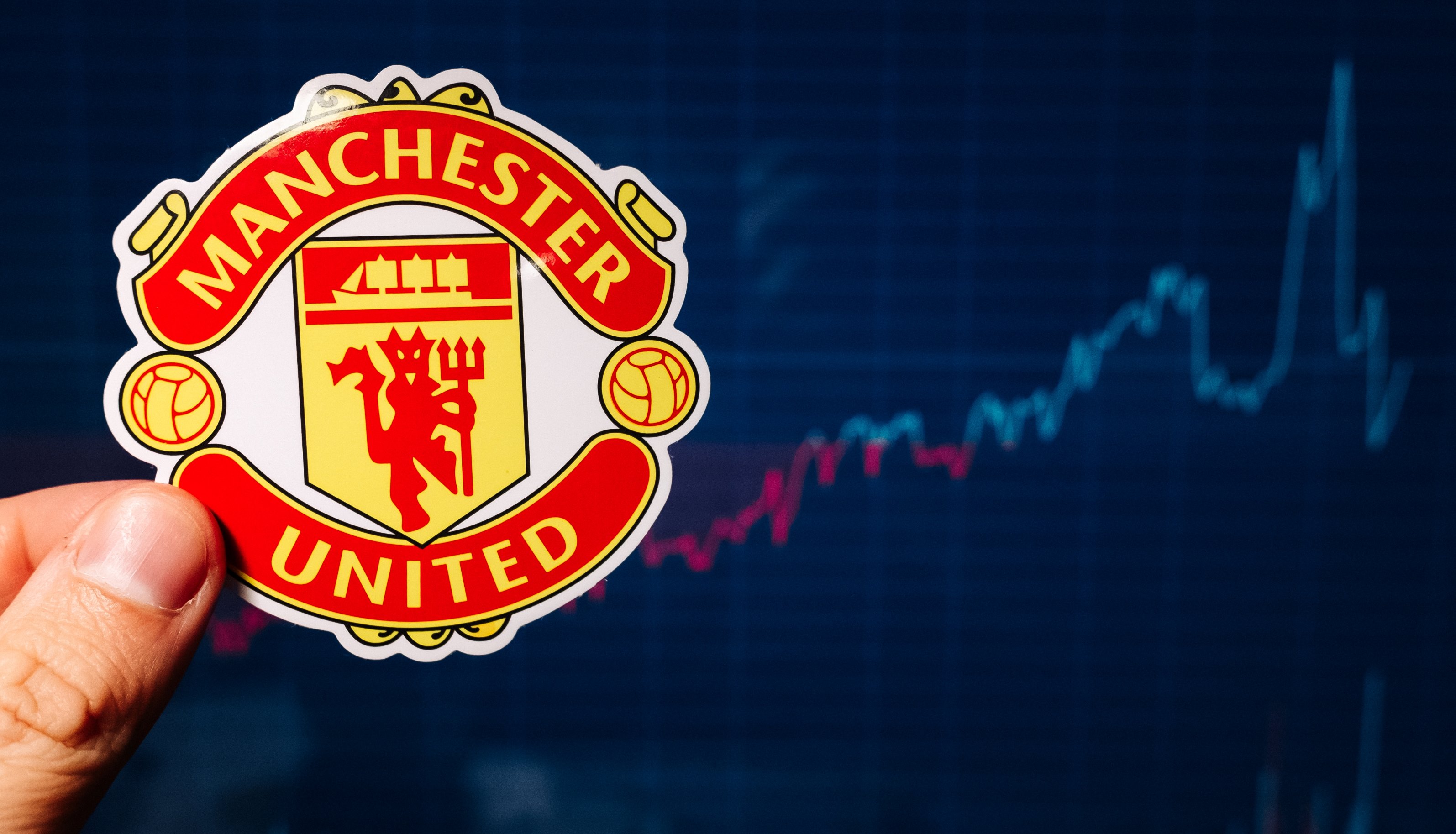Warning on risks: Financial contracts for difference are complex instruments and are associated with a high risk of rapid financial losses due to leverage. On 76.44% of retail investor accounts, financial losses occur when trading financial contracts for difference with this provider. You should consider whether you understand how financial contracts for difference work, and whether you can afford to take the high risk of suffering financial losses. Please read the Risk Disclosures.


5 Football Clubs That Attract Investors Like Stock Market Stars
Manchester United: A Global Giant with Stock Market Swings
Manchester United remains by far the most valuable and well-known publicly traded football club on the New York Stock Exchange (NYSE), with a market capitalization of $2.9 billion as of July 1, 2025. Despite a recent dip in Premier League performance, the club draws strength from its massive global fan base and maintains steady revenue from official merchandise sales and commercial rights. Broadcasting rights from the Premier League and European competitions such as UEFA, which rank among the most lucrative in the world, also bring in significant financial support.
Since 2015, Manchester United has regularly paid dividends, making it appealing to investors seeking consistent income. However, sporting results and market sentiment drive significant fluctuations in the stock price. For example, progress in the Europa League during the third quarter of fiscal year 2025 (from January 1 to March 31, 2025) increased revenues by 17.4% and temporarily boosted the share price despite poor domestic league performance. This highlights how investments in football clubs are deeply tied not just to on-pitch performance, but also to broader economic forces.
Manchester United stock performance over the past 5 years. (Source: tradingview.com)*
Juventus: A Mix of Fame, Risk, and Ronaldo
Juventus, the Italian giant known as “The Old Lady,” is listed on the Milan Stock Exchange (BIT) and had a market value of around €1.12 billion ($1.32 billion) as of July 1, 2025. The club experienced a significant surge in investor interest in 2018 following the arrival of Cristiano Ronaldo, which brought global publicity and boosted commercial revenues. However, the financial picture is far from risk-free. Juventus struggles with a high level of debt, stemming from ambitious investments in players and their wage demands. Although the club managed to reduce its debt to €242.8 million ($285.9 million) in the summer of 2024, it climbed again to €302.3 million (around $329.5 million) by the end of the same year, highlighting the volatility of its financial stability.
The market price of Juventus shares is therefore highly sensitive not only to sporting success but also to news about sponsorship deals or the club’s financial strategy. For potential investors, Juventus represents a strong brand with a loyal fan base, but also a higher level of risk linked to its financial health.
Juventus FC stock performance over the past 5 years. (Source: tradingview.com)*
Borussia Dortmund: A Model of Financial Sustainability and Stability
Borussia Dortmund is the only publicly traded German football club, with its shares listed on the Frankfurt Stock Exchange (ETR) and a market capitalization of around €430 million ($506.4 million) as of July 1, 2025. Dortmund is known for its sustainable financial management and prudent budgeting. The club places strong emphasis on youth development and generating profits from player transfers, which helps maintain financial stability. Beyond football, it also diversifies its income through investments in sports equipment and tourism. Regular dividend payments make Dortmund an attractive option for investors who prefer lower volatility compared to other football-related stocks. Its stable financial position and solid standing in the Bundesliga contribute to a lower-risk investment profile.
Borussia Dortmund stock performance over the past 5 years. (Source: tradingview.com)*
Celtic FC: A Scottish Legend on a Growth Path Without Dividends
Celtic FC, the most famous Scottish club, is traded on the AIM market of the London Stock Exchange, with a market capitalization of approximately £186.9 million ($256.5 million). The club enjoys a strong and loyal fan base, which ensures consistently sold-out home games and provides stable matchday revenue. Celtic has undergone financial recovery since facing bankruptcy concerns in the 1990s and has recently shown significant earnings-per-share growth, increasing by as much as 78% since 2018. However, the club does not pay dividends, instead choosing to reinvest its profits into further development.
Celtic’s share price has more than doubled since 2017, reflecting investor confidence in the club’s sporting and commercial stability.
Celtic FC stock performance over the past 5 years. (Source: tradingview.com)*
SL Benfica: A Talent Factory with European Reach
Portuguese club SL Benfica, listed on the Euronext exchange in Lisbon, had a market capitalization of €115.5 million ($136 million) as of July 1, 2025. Benfica is well known for its ability to develop young talent and profit from player transfers, while consistently competing in European competitions, boosting its income from broadcasting rights and commercial sources. The club also has a strong domestic fan base and a well-established brand not only in Portugal but also in Lusophone (Portuguese-speaking) countries. For investors, Benfica represents a valuable asset that stands out in the growing commercial ecosystem of Portuguese football, where sporting ambition blends with disciplined financial management.
SL Benfica stock performance over the past 5 years. (Source: tradingview.com)*
Revenue Diversification and the Role of Stadiums
What all these clubs have in common is broad revenue diversification, combining income from broadcasting rights, sponsorships, ticket sales, and official merchandise. On-pitch performance, especially in UEFA competitions, directly impacts not only revenues but also stock prices. The financial health of these clubs varies. In general, football club stocks are more volatile than traditional businesses due to emotion-driven markets and the unpredictability of sport.
*Past performance is not indicative of future results.




